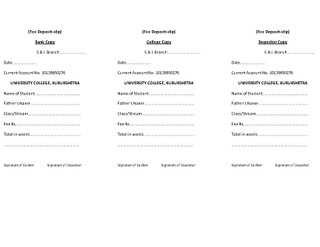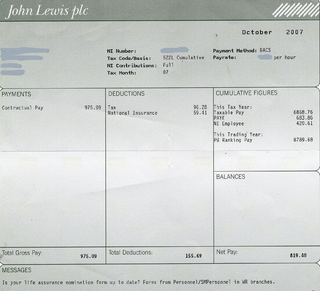 W
WAn allowance is an amount of money given or allotted usually at regular intervals for a specific purpose. In the context of children, parents may provide an allowance to their child for their miscellaneous personal spending. In the construction industry, an allowance may be an amount allocated to a specific item of work as part of an overall contract.
 W
WCharon's obol is an allusive term for the coin placed in or on the mouth of a dead person before burial. Greek and Latin literary sources specify the coin as an obol, and explain it as a payment or bribe for Charon, the ferryman who conveyed souls across the river that divided the world of the living from the world of the dead. Archaeological examples of these coins, of various denominations in practice, have been called "the most famous grave goods from antiquity."
 W
WA cover charge is an entrance fee sometimes charged at bars, nightclubs, or restaurants. The American Heritage Dictionary defines it as a "fixed amount added to the bill at a nightclub or restaurant for entertainment or service." In restaurants, cover charges generally do not include the cost of food that is specifically ordered, but in some establishments, they do include the cost of bread, butter, olives and other accompaniments which are provided as a matter of course.
 W
WA fee is the price one pays as remuneration for rights or services. Fees usually allow for overhead, wages, costs, and markup. Traditionally, professionals in the United Kingdom receive a fee in contradistinction to a payment, salary, or wage, and often use guineas rather than pounds as units of account. Under the feudal system, a Knight's fee was what was given to a knight for his service, usually the usage of land. A contingent fee is an attorney's fee which is reduced or not charged at all if the court case is lost by the attorney.
 W
WA fine or mulct is a penalty of money that a court of law or other authority decides has to be paid as punishment for a crime or other offense. The amount of a fine can be determined case by case, but it is often announced in advance.
 W
WA paycheck, also spelled pay check or pay cheque, is traditionally a paper document issued by an employer to pay an employee for services rendered. In recent times, the physical paycheck has been increasingly replaced by electronic direct deposits to the employee's designated bank account or loaded onto a payroll card. Employees may still receive a pay slip to detail the calculations of the final payment amount.
 W
WA project bank account is a means of paying sub-contractors in a construction project directly from the funds made available by the construction client instead of from the earnings or funds of the prime contractor. The UK Government promotes the use of project bank accounts (PBAs) in major construction projects.
 W
WSettlement of securities is a business process whereby securities or interests in securities are delivered, usually against payment of money, to fulfill contractual obligations, such as those arising under securities trades. Nowadays, settlement typically takes place in a central securities depository.
 W
WThirty pieces of silver was the price for which Judas Iscariot betrayed Jesus, according to an account in the Gospel of Matthew 26:15 in the New Testament. Before the Last Supper, Judas is said to have gone to the chief priests and agreed to hand over Jesus in exchange for 30 silver coins, and to have attempted to return the money afterwards, filled with remorse.